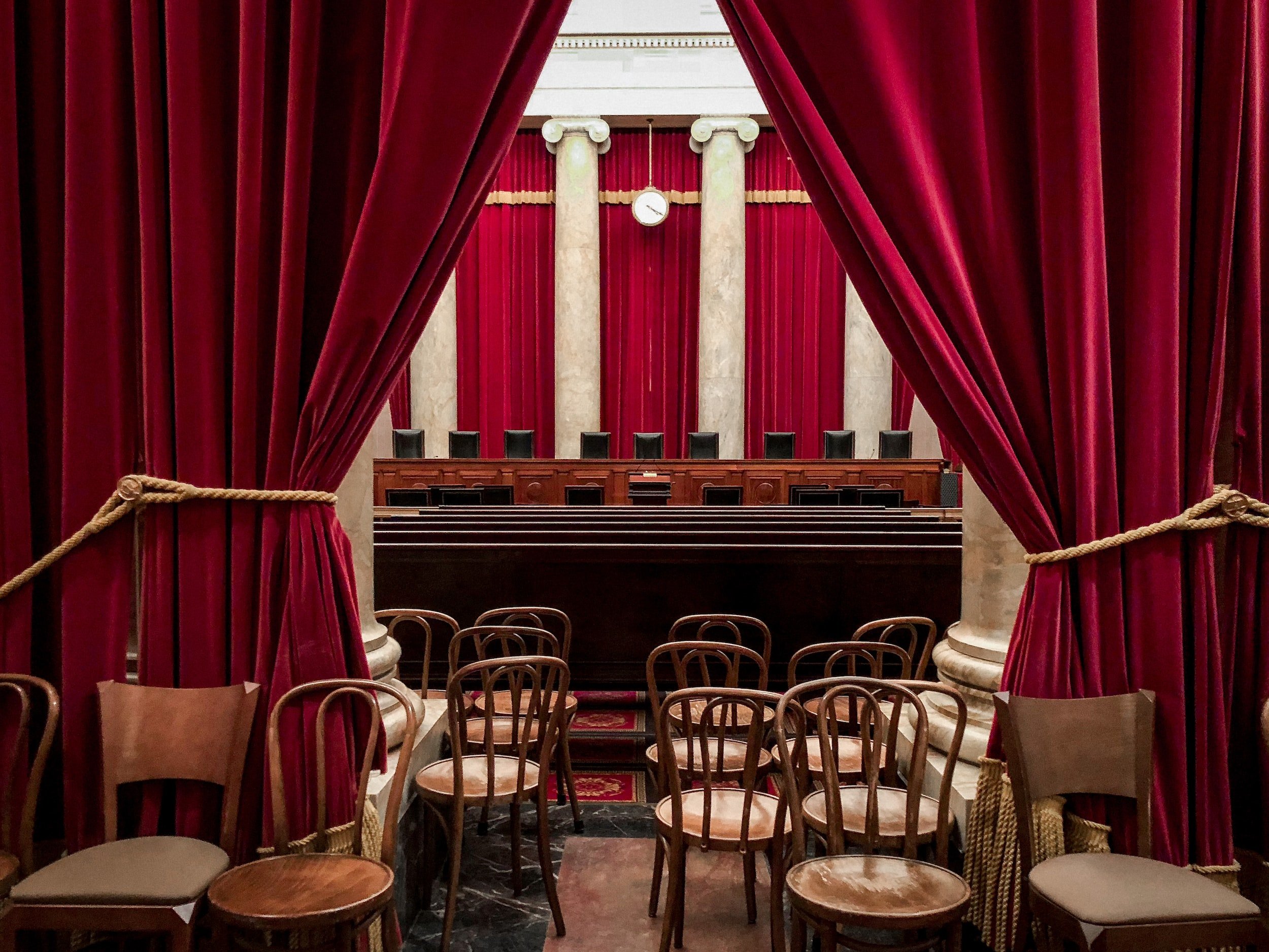Landmark Court Cases Inquiry
Each case comes with tons of visuals, videos, and information so students can learn about its constitutional connection, key facts, constitutional questions, holding, impact of case, connection to other cases, and critical questions. Each case includes a lesson, graphic organizer, and a completed rubric for teachers.
CLICK ON THE THUMBNAIL BELOW TO LEARN ABOUT EACH OF THE 14 LANDMARK SUPREME COURT CASES
Landmark Cases Rubric
Complete this graphic organizer for each case of the fourteen required landmark Supreme Court Cases.
Rank the Landmark Cases
They’re all important (that’s why we call them landmark cases), but which ones stand out at the tip top of all court cases?
Constitutional Connection
What’s the constitutional connection to each case?
Constitutional Speculation
Imagine the current Supreme Court reheard the 14 landmark cases. How would they rule, and why?
Landmark Court Case Project
Use our engaging Landmark Case project to make your court case knowledge stick
Interactive Court Cases Timeline
All the landmark Supreme Court cases in a row with essential knowledge and links.
Wisconsin v. Yoder (1972)
Constitutional Connection
Free Exercise Clause of the First Amendment of the U.S. Constitution.
Wisconsin v. Yoder (1972) is the case in which the United States Supreme Court found that Amish children could not be placed under compulsory education past 8th grade. The parents' fundamental right to freedom of religion was determined to outweigh the state's interest in educating their children.
Key Facts
Jonas Yoder and Wallace Miller, both members of the Old Order Amish religion, and Adin Yutzy, a member of the Conservative Amish Mennonite Church, were prosecuted under a Wisconsin law that required all children to attend public schools until age 16. The three parents refused to send their children to such schools after the eighth grade, arguing that high school attendance was contrary to their religious beliefs.
Big Question
Did Wisconsin's requirement that all parents send their children to school at least until age 16 violate the First Amendment by criminalizing the conduct of parents who refused to send their children to school for religious reasons?
Holding
Unanimous Decision 7-0 The Court held that individual's interests in the free exercise of religion under the First Amendment outweighed the State's interests in compelling school attendance beyond the eighth grade. In the majority opinion by Chief Justice Warren E. Burger, the Court found that the values and programs of secondary school were "in sharp conflict with the fundamental mode of life mandated by the Amish religion," and that an additional one or two years of high school would not produce the benefits of public education cited by Wisconsin to justify the law. Justice William O. Douglas filed a partial dissent but joined with the majority regarding Yoder. Justices Lewis Powell and William Rehnquist took no part in the consideration or decision of the case.
Impact of case
In Wisconsin v. Yoder, the Court prioritized free exercise of religion over the state interest in an educated populace. The Court ruled that the individual liberty to worship freely outweighed the state's interest in forcing students to attend school. The Supreme Court held that the Free Exercise Clause of the First Amendment, as incorporated by the 14th Amendment, prevented the state of Wisconsin from compelling the respondents to send their children to formal secondary school beyond the age of 14. State laws mandating compulsory attendance beyond eight grade without a religious exemption are unconstitutional and thus unenforceable in the United States. *Now, throughout the United States you can find Amish high school dropouts loitering around convenience stores menacingly. *That last sentence about the impact of the case is totally made up and 100% not real.
Connections
Other free exercise clause cases are related to the Yoder case. United States v. Lee (1982) ruled that religious exemptions to federal law were limited when the good of the country outweighed the good of the individual. The United States v. Lee decision required an Amish business owner to pay social security taxes over his objections that these taxes violated his First Amendment right.
Employment Division, Department of Human Resources of Oregon v. Smith, 494 U.S. 872 (1990), is a United States Supreme Court case that held that the state could deny unemployment benefits to a person fired for violating a state prohibition on the use of peyote even though the use of the drug was part of a religious ritual. Although states have the power to accommodate otherwise illegal acts performed in pursuit of religious beliefs, they are not required to do so.
In the recent case of Kennedy v. Bremerton School District (2022) the Court ruled that the Free Exercise and Free Speech Clauses of the First Amendment protect an individual engaging in a personal religious observance from government reprisal (in this case a coach was fired for preaching in public with his players at public school football games); the Constitution neither mandates nor permits the government to suppress such religious expression.
Check out this interesting recent court case which cites Wisconsin v. Yoder as precedent.
Here's a list of landmark Supreme Court cases dealing with the The Free Exercise Clause.
Related Cases:
Critical Questions
What clause in The First Amendment was the basis of the Yoder ruling?
Explain how the ruling in Kennedy v. Bremerton School District relates to the Yoder ruling?
Imagine life without The Free Exercise Clause. Describe how American life would be different without the clause.
Is pizza delicious or what?
If you were a Supreme Court Justice, how would you have ruled in Wisconsin v. Yoder?
The First Amendment states that “Congress shall make no law respecting an establishment of religion,” Do you think the Framers would have agreed with the Yoder ruling?
Make something creative out of the case of Wisconsin v. Yoder. Here are your instructions.
And what happens when two important American values come into conflict: freedom of religion, and the state’s need to educate children?
Bonus Learning Factstravaganza
Three Amish students from three different families stopped attending the New Glarus High School in the New Glarus, Wisconsin, school district at the end of the eighth grade because of their parents' religious beliefs.
The three families were represented by Jonas Yoder (one of the fathers involved in the case) when the case went to trial. They were convicted in the Green County Court. Each defendant was fined the nominal sum of $5. Thereafter the Wisconsin Supreme Court found in Yoder's favor. Thereupon, Wisconsin appealed that ruling in the US Supreme Court.
38% of all statistics are made up on the spot.
The Amish did not believe in going to court to settle disputes but instead follow the biblical command to "turn the other cheek." Thus, the Amish are at a disadvantage when it comes to defending themselves in courts or before legislative committees. However, a Lutheran minister, Reverend William C. Lindholm, took an interest in Amish legal difficulties from a religious freedom perspective and founded The National Committee for Amish Religious Freedom (partly as a result of this case) and then provided them with legal counsel.
Yoder was not in any way connected to Luke Skywalker.
Under Amish church standards, higher education was deemed not only unnecessary for their simple way of life, but also endangering to their salvation. These men appealed for exemption from compulsory education on the basis of these religious convictions. They sincerely held to the belief that the values their children would learn at home would surpass the worldly knowledge taught in school.
Here’s what it the court case sounds like to me
Wisconsin v. Yoda
I've got my money on Yoda!
Here’s what it the court case looks like to me
A storyboard is a graphic organizer in the form of illustrations or images displayed in sequence for the purpose of pre-visualizing a motion picture, animation, motion graphic or interactive media sequence. Filmmakers use these as ways to organize the story they tell. Think of it as sort of like a comic strip to summarize the main points of a story. You can draw out a basic storyboard for Wisconsin v. Yoder or you could use this great free storyboard animation creator to make your own. I made this three panel storyboard for free in about 90 seconds using a website I had never used before. Pretty nifty, huh?!
Jonathan “Mister” Milner!
Resources
Wisconsin v. Yoder at Oyez
Wisconsin v. Yoder at JUSTIA
Wisconsin v. Yoder from Cornell Law School
Where are the women???
This case was decided in 1972 - there were women then - but none on the Supreme Court.
The first female Supreme Court Justice, Sandra Day O’Connor would not serve until 1981.
“The problem with quotes on the Internet, is that it is hard to verify their authenticity.”
The 1972 Supreme Court, AKA: Judgez to Men
“Congress shall make no law respecting an establishment of religion, or prohibiting the free exercise thereof. ”
Wisconsin v. Yoda Quote Unquote
Wisconsin v. Yoder
You
Only
Do
Education if your
Religion says you can
Wisconsin v. Yoda
Famous YODA Quotes about Wisconsin v. Yoder
“freedom of religion, you must have young Padawan/Amish!” — Yoda
“You must unlearn what you have learned in a public school if you are a 14 year or older Amish boy whose parents do not want them to go to public school.” — Yoda
“Do freedom of religion or do not do freedom of religion, there is no try.” — Yoda
“Feel the Force, trying to empower you with the First Amendment rights granted you by the Free Exercise Clause.” — Yoda
“Mandatory Public education for those with a religious interest in avoiding public education is the path to the dark side. Fear leads to anger. Anger leads to hate. Hate leads to suffering.” — Yoda
“Once you start down the dark path of mandatory public education in violation of religious freedom, forever will it dominate your destiny. Consume you, it will.” – Yoda
“Always pass on what you have learned. Unless you learned it in a mandatory public school education in violation of the First Amendment’s Free Exercise Clause.” — Yoda



































